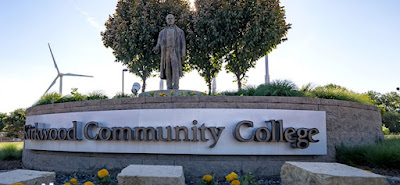Nicholas Johnson
The Gazette, January 18, 2022, p. A6
I asked Senator Hubert Humphrey what he told newly elected senators. He said, “I tell ‘em they have to work four years for the Lord and then two years to get re-elected.”
There may never be another Hubert Humphrey, but there are officials who agree. Some may be responding to Jesus’ admonition we provide “the least of these” with food, water, shelter, clothing, health care – and prison visits (Matthew 25). Some acquire similar values from a different path.
Of course, others focus only on reelection -- pleasing major donors and party leadership.
Economics is not an exact science.
President Harry Truman’s assistant, Dr. John Steelman, described the President’s reaction to an economist providing “on the one hand” and “on the other hand” advice. When the economist left the oval office, Truman asked Steelman, “John, do you think you could find me a one-armed economist?”
That there are no “one-armed economists” is not because they are lacking in courage or knowledge. It is, as Harvard’s Alan Wang put it, “due to the inherently unpredictable sphere of study in which economics operates.”
“Greed – for lack of a better word – is good,” said Michael Douglas’ character, Gordon Gekko, in the movie “Wall Street.” Milton Friedman established the precedent with his assertion that “businesses serve society best when they abandon talk of ‘social responsibilities’ and solely maximize returns for shareholders.”
It’s hard to make social progress without support from the “greed is good” crowd.
Fortunately, there’s a small group who see the selfish interests for all, including billionaires, from a “rising tide that lifts all boats.” They prosper “doing well by doing good,” aware that shortsighted greed can lead to shooting oneself in the pocketbook.
To boost an economy, 70 percent of which is driven by consumer spending, consumers need money. Cutting taxes for the wealthy may increase sales of private planes and yachts but doesn’t do much for our Gross Domestic Product.
The futility of the “trickle down” theory was best explained by Harvard economist Ken Galbraith: “If you feed the horse enough oats, some will pass through to the road for the sparrows.”
• Iowa has a skilled workforce shortage. Community colleges create skilled workers. Many high school grads can’t afford tuition. Iowa’s businesses don’t want to train them. If greed is good, why don’t businesses force the legislature to provide free community college for all? They’d get their skilled workers – and shift the cost to taxpayers. [Photo credit: Kirkwood Community College, https://kirkwood.edu]
• Employee healthcare creates both hassle and huge costs for business. A universal single payer system would eliminate both – and give taxpayers the bill.
• Self-described plutocrat Nick Hanauer makes a similarly persuasive case for a $15 minimum wage, citing Seattle’s experience. That way those who work in restaurants can afford to eat in them. Everyone benefits, including the plutocrats – according to the 135 economists who agree.
Iowa legislators, how about putting in at least one year for the Lord? If greed is good, suppressing the poor makes neither dollars nor sense.
_______________
Nicholas Johnson is the author of What Do You Mean and How Do You Know? Contact: mailbox@nicholasjohnson.org
“Four years for the Lord.” This is my memory from a personal conversation between only the two of us that does not seem to have been recorded anywhere else.
“Matthew 25.” Bible, King James Version, Bible Gateway, https://www.biblegateway.com/passage/?search=Matthew%2025&version=KJV
President Truman, one-armed economist. “Quote Investigator,” https://quoteinvestigator.com/2019/04/10/one-handed/
Alan Wang, “unpredictable sphere of study.” Alan Y. Wang, “No, Economics Is Not a Science,” Harvard Crimson, Dec. 13, 2013, https://www.thecrimson.com/article/2013/12/13/economics-science-wang/
“Greed is good.” “The point is, ladies and gentleman, that greed – for lack of a better word – is good. Greed is right. Greed works. Greed clarifies, cuts through, and captures the essence of the evolutionary spirit. Greed, in all of its forms – greed for life, for money, for love, knowledge – has marked the upward surge of mankind.” Gordon Gekko, Wall Street (movie), 1987. https://www.youtube.com/watch?v=VVxYOQS6ggk (a 2:05 clip from the movie “Wall Street” containing this quote)
“His point . . . was that businesses serve society best when they abandon talk of ‘social responsibilities’ and solely maximize returns for shareholders.” Richard Holden, “Vital Signs: 50 years ago Milton Friedman told us greed was good. He was half right,” The Conversation, Hoover Institution, Sept. 17, 2020, https://theconversation.com/vital-signs-50-years-ago-milton-friedman-told-us-greed-was-good-he-was-half-right-146294
GDP & consumer spending. Kimberly Amadeo, “Components of GDP Explained,” The Balance, June 26, 2020, https://www.thebalance.com/components-of-gdp-explanation-formula-and-chart-3306015 (“Consumer spending comprises 70% of GDP.”)
Galbraith’s sparrows. John Kenneth Galbraith, “Recession Economics,” The New York Review, Feb. 4, 1982, https://www.nybooks.com/articles/1982/02/04/recession-economics/ (“If you feed the horse enough oats, some will pass through to the road for the sparrows.”)
Workforce. Erin Murphy and James Q. Lynch, “Iowa lawmakers agree on need for workers — but not how to get them,” The Gazette, Jan. 10, 2022, https://www.thegazette.com/article/iowa-lawmakers-agree-on-need-for-workers-but-not-how-to-get-them/
Minimum wage. Nick Hanauer. https://www.ted.com/talks/nick_hanauer_beware_fellow_plutocrats_the_pitchforks_are_coming
Molly Ball, “A Plutocrat’s Case for Raising the Minimum Wage,” The Atlantic, Jan/Feb 2016, https://www.theatlantic.com/magazine/archive/2016/01/a-plutocrats-case-for-raising-the-minimum-wage/419130/
Google search phrase: economists who believe raising minimum wage helps economy https://www.epi.org/economists-in-support-of-15-by-2024/ (“stimulate consumer demand, business activity, and job growth”) -- with list of 135 names
Minimum wage is about to rise in 21 states, 35 localities as more https://www.usatoday.com › story › money › 2021/12/20 Google search phrase: which cities or states have a $15 minimum wage
$7.25 The minimum wage in Iowa is $7.25. This is the same as the federal minimum wage, which has not changed since July 2009. Iowa is one of 21 states that follow the federal minimum wage. Mar 9, 2021 Google search: what is minimum wage iowa
What You Need to Know About Iowa's Minimum Wage – Square https://squareup.com › guide-to-iowa-minimum-wage


